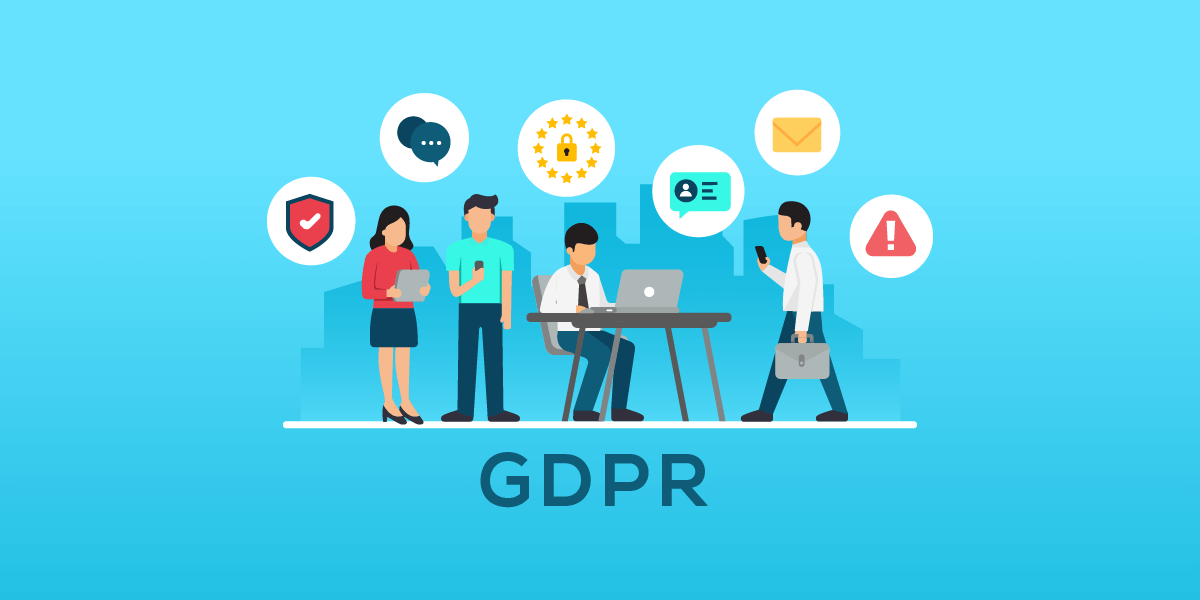Due to an increased global internet usage, there is significant growth in digital footprint and thus, with the inherent growth in digital data the importance of data privacy and security has gained tremendous importance. These days with businesses going digital and the consumers becoming more tech-savvy, it has become crucial for business to utilize consumer data and thus it is their responsibility to secure this data which may contain personal information or transaction detail of consumers. Consumers lose trust when they find that their data has been tampered or misused by any company and this invariably impacts reputation of the company. Consequently, there is an urgent need to secure each aspect of digital consumer data. GDPR thus implements new set of rules that enable European Union netizens improved control over their personal data and focuses on implementing a regulatory environment for businesses that use this data.

WHAT IS GDPR?
The General Data Protection Regulation (GDPR) is a regulation in European Union (EU) law on data protection and privacy that governs all individuals personal data within the European Union (EU) and European Economic Area (EEA). It is the most significant regulation in 20 years for the protection of data. This level of regulatory governance of personal data is exceptional and will require businesses to ensure extremely high level of data protection, privacy controls or suffer dire financial consequences.
The 1995 Data Protection Directive allowed for each member of the European Union to adopt and customize the law as per the requirements of their citizens. GDPR which replaces the directive is a more stringent and requires full adoption with no flexibility to customize it and all countries of the EU have to comply with this regulation in its present form. Since, its approval on April 14, 2016, by the EU Parliament GDPR has been enforced on 25 May 2018.
NEED OF GDPR:
Companies that operate or have users from the European Union and European Economic Area have to adopt GDPR Complaint Solutions and follow the regulation. As per the new terms of GDPR, organizations have to safeguard all user’s personal data that have been gathered, stored and managed under strict privacy and security conditions. Further, they are responsible to protect its misuse and exploitation, and need to respect all rights of data owners or face strict penalties.
The law ensures the data privacy in various sectors is handled with utmost care and the citizen empowerment for their security of the data. Moreover, the entire region and various industries have to adopt it in the European Union. Considering the growing concerns around personal data security similar regulatory concept will be followed in various parts of the world in the future. Thus, several countries including India is likely to adopt similar laws in the future.

BENEFITS Of GDPR:
FOR CITIZENS – Consequently, the law states to require the consent of the public to use the data which is deemed to be sensitive (Racial Origin, Political Opinion, Religious Beliefs, Trade Union Membership, Health, Sex Life, Biometric Data and processing of genetic data etc). This can be used for the purpose of public health, employment and social protection.
The Data design is technically designed in a way that ensures privacy by design and regulations of GDPR. Further, Data portability helps the data provider to transfer their earlier provided data in another controller. Special regulations in the scenario of Data Breach, it is mandatory to inform the controllers and customers within 72 hours, so that appropriate action can be taken on time. Moreover, Right to Access guarantees the transparency in taking the access from customers for their personal data usage and purpose. Furthermore, under Right to be Forgotten in Article 17 of GDPR, in addition to the erasure of data, the controller obliged to erase the personal data of the consumers when it is not required without any delay. When the purpose for collection of data is fulfilled, the GDPR has made it mandatory to erase on urgent basis.
FOR EMPLOYEES- GDPR empowers the right of employees against data security by providing strict guidelines for handling the data. DPO (Data Protection officers must be hired or their services must be outsourced for large-scale analysis and processing of Data. There is a law to maintain the relevant record of an employee for the past six years and maintain related documentation for the purpose of processing activities. There should be clear-cut transparency in providing privacy policies and appropriate measures are required to comply with GDPR.

FOR BUSINESS – Along with the appointment of DPO officers, the businesses are required to comply with reliable GDPR Solutions. There is a need to change the way you store the personal data of customers and amended in the way to ensure reliable compliance with GDPR solutions. Supposedly, the way you send email to the customers should be done in a confidential manner and the automated personal Data, as well as Sensitive Data, can be accessed by following proper criteria.
FOR CUSTOMERS – GDPR values the consent of customers and provides valuable insights into how their data was used and stored, even they can decide whether their data should be used for analysis or not. Customers who shop online have their data feed in the software. The Software should have additional settings to enhance the protection of data and compliance with GDPR sustainable solutions. Besides, the huge penalty for not following GDPR – 20 million euros or 4 percent of turnover (whichever is greater), there would be a loss in the consumers as well as the brand reputation.
Consequently, Data Privacy is a global concern and customers are looking for GDPR compliance in their applications, especially in Europe. Revolux Solutions understands the significance of designing and developing software solutions which protect Data Privacy and encrypt Data by allowing personalization and users control over access of Data. For any related queries or GDPR compliant solutions, visit the link – www.revoluxsolutions.com
